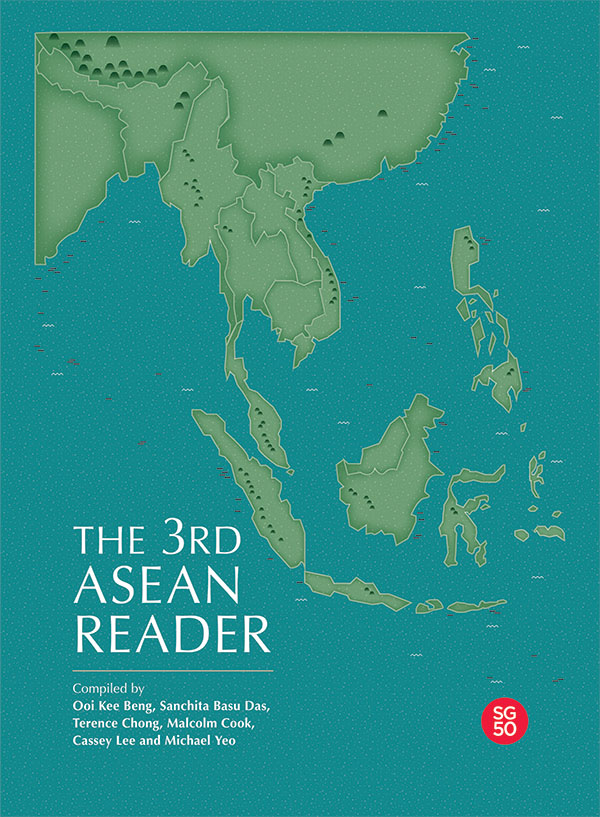Book contents
- Frontmatter
- Contents
- Preface
- Forewords to the First and Second ASEAN Reader: ASEAN: Conception and Evolution
- Forewords to the First and Second ASEAN Reader: ASEAN: The Way Ahead
- Forewords to the First and Second ASEAN Reader: New Challenges for ASEAN
- SECTION I ASEAN: THE LONG VIEW
- SECTION II COUNTRY ANALYSES
- Section Introduction by
- 5 Political Figures and Political Parties: Indonesia after Soeharto
- 6 Malaysia: Close to a Tipping Point
- 7 Thailand: The Military's Power Persists
- 8 Vietnam: Reforms Show Mixed Results
- 9 The Philippines: Challenging Conventional Wisdom
- 10 Myanmar: Late Embrace of ASEAN
- 11 Timor-Leste and ASEAN
- SECTION III COMPARATIVE ANALYSES OF THE REGION
- Southeast Asian Societies
- The Southeast Asian Economy
- Southeast Asian Politics
- SECTION IV INTERNATIONAL DEVELOPMENTS
- SECTION V INSTITUTIONS OF ASEAN
- SECTION VI ASSESSING ASEAN'S INTERNAL POLICIES
- ASEAN Political Security Community
- ASEAN Economic Community
- ASEAN Socio-Cultural Community
- SECTION VII ASSESSING ASEAN'S EXTERNAL INITIATIVES
- ASEAN Processes
- ASEAN's Major Power Relations
- SECTION VIII SOUTHEAST ASIA: PERIPHERAL NO MORE
- Bibliography
- The Contributors
- The Compilers
7 - Thailand: The Military's Power Persists
from SECTION II - COUNTRY ANALYSES
Published online by Cambridge University Press: 22 June 2017
- Frontmatter
- Contents
- Preface
- Forewords to the First and Second ASEAN Reader: ASEAN: Conception and Evolution
- Forewords to the First and Second ASEAN Reader: ASEAN: The Way Ahead
- Forewords to the First and Second ASEAN Reader: New Challenges for ASEAN
- SECTION I ASEAN: THE LONG VIEW
- SECTION II COUNTRY ANALYSES
- Section Introduction by
- 5 Political Figures and Political Parties: Indonesia after Soeharto
- 6 Malaysia: Close to a Tipping Point
- 7 Thailand: The Military's Power Persists
- 8 Vietnam: Reforms Show Mixed Results
- 9 The Philippines: Challenging Conventional Wisdom
- 10 Myanmar: Late Embrace of ASEAN
- 11 Timor-Leste and ASEAN
- SECTION III COMPARATIVE ANALYSES OF THE REGION
- Southeast Asian Societies
- The Southeast Asian Economy
- Southeast Asian Politics
- SECTION IV INTERNATIONAL DEVELOPMENTS
- SECTION V INSTITUTIONS OF ASEAN
- SECTION VI ASSESSING ASEAN'S INTERNAL POLICIES
- ASEAN Political Security Community
- ASEAN Economic Community
- ASEAN Socio-Cultural Community
- SECTION VII ASSESSING ASEAN'S EXTERNAL INITIATIVES
- ASEAN Processes
- ASEAN's Major Power Relations
- SECTION VIII SOUTHEAST ASIA: PERIPHERAL NO MORE
- Bibliography
- The Contributors
- The Compilers
Summary
The military coup d’état of 22 May 2014 brought enforced quiescence to Thailand. This quiescence contrasted with the turmoil of the preceding decade. That turmoil included protests against the Thai Rak Thai Party government of Prime Minister Thaksin Shinawatra starting in late 2005, his ouster in a coup in September 2006, the return of a pro-Thaksin party to power in elections held in December 2007, and the removal by means of judicial processes of two premiers from that party in the closing months of 2008. It also brought about Thaksin's August 2008 flight into exile to escape corruption charges, his “Red Shirt” supporters’ disruption of the ASEAN Plus Three and East Asian Summits hosted by Democrat Party Prime Minister Abhisit Vejjajiva in April 2009, and protests against the Abhisit government whose quelling brought the greatest loss of life in civil conflict in Thailand for many decades during April and May 2010. While the triumph of the Phuea Thai Party in the elections of July 2011 propelled Thaksin's sister Yingluck into the premiership and ushered in relative calm, the end of 2013 and the first half of 2014 witnessed a campaign of demonstrations against her government and led, finally, to the 22 May coup.
The years since 2005 have also seen Thailand, long viewed as one of the great successes of Cold War-era “nation-building” not only in Southeast Asia but also in the post-colonial world more generally, emerge as a bitterly divided society. It seemed to become, suddenly, a country debilitated by disagreements over fundamental questions concerning its social order, standards of political legitimacy and basic institutions. These disagreements often took the form of feelings — blind hatred on one side, unwavering loyalty on the other — toward the unquestionably transformational figure of Thaksin. But their origins predated Thaksin's 2001–6 premiership by decades. Their bases lay in developments broader than the policies and conduct that defined that premiership. For the same developments that long accounted for Thailand's image of harmony, prosperity and success also explain its crisis of the last decade. These developments date to a period of just a few years in the late 1950s and early 1960s.
- Type
- Chapter
- Information
- The 3rd ASEAN Reader , pp. 36 - 40Publisher: ISEAS–Yusof Ishak InstitutePrint publication year: 2015



